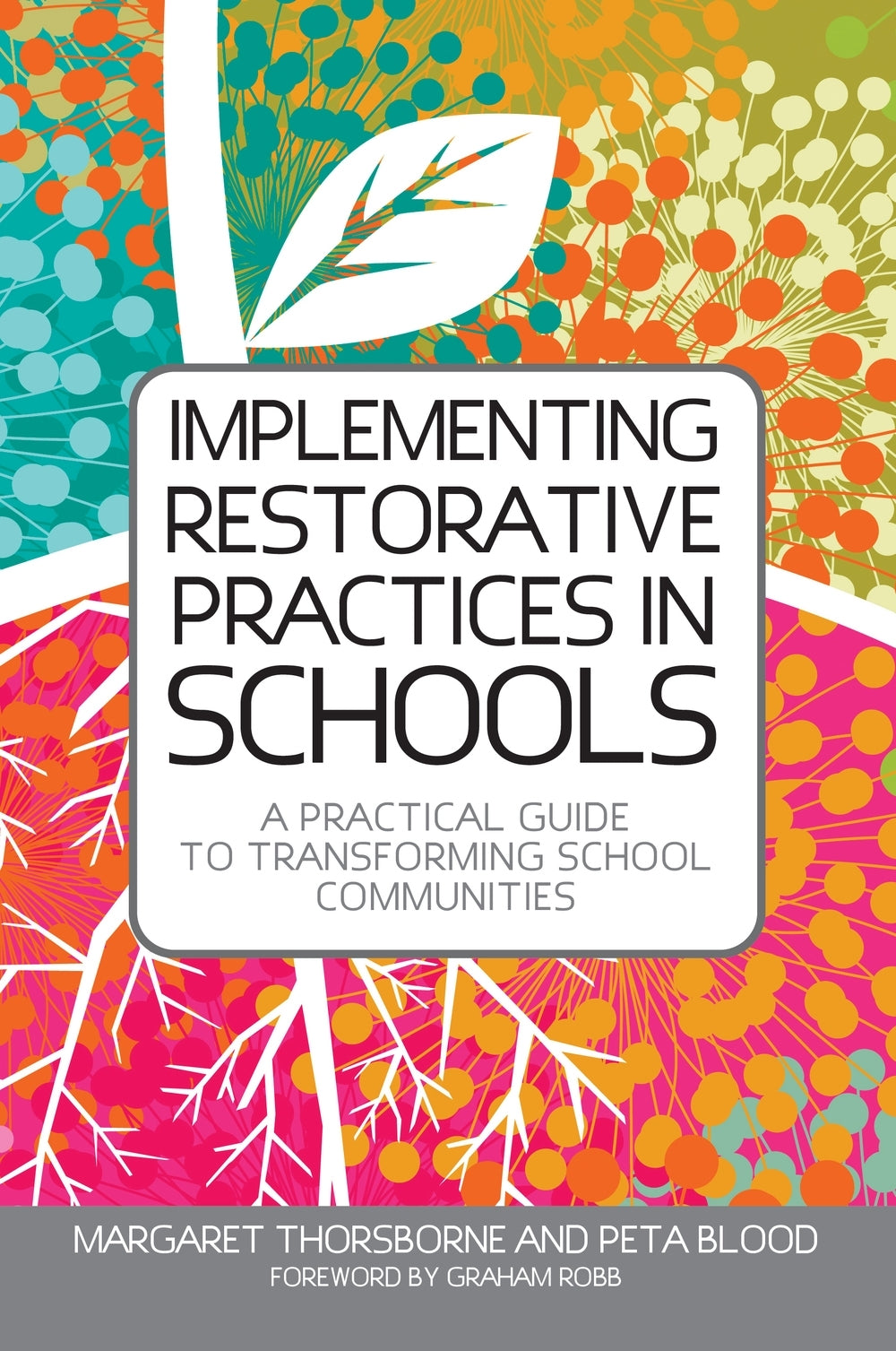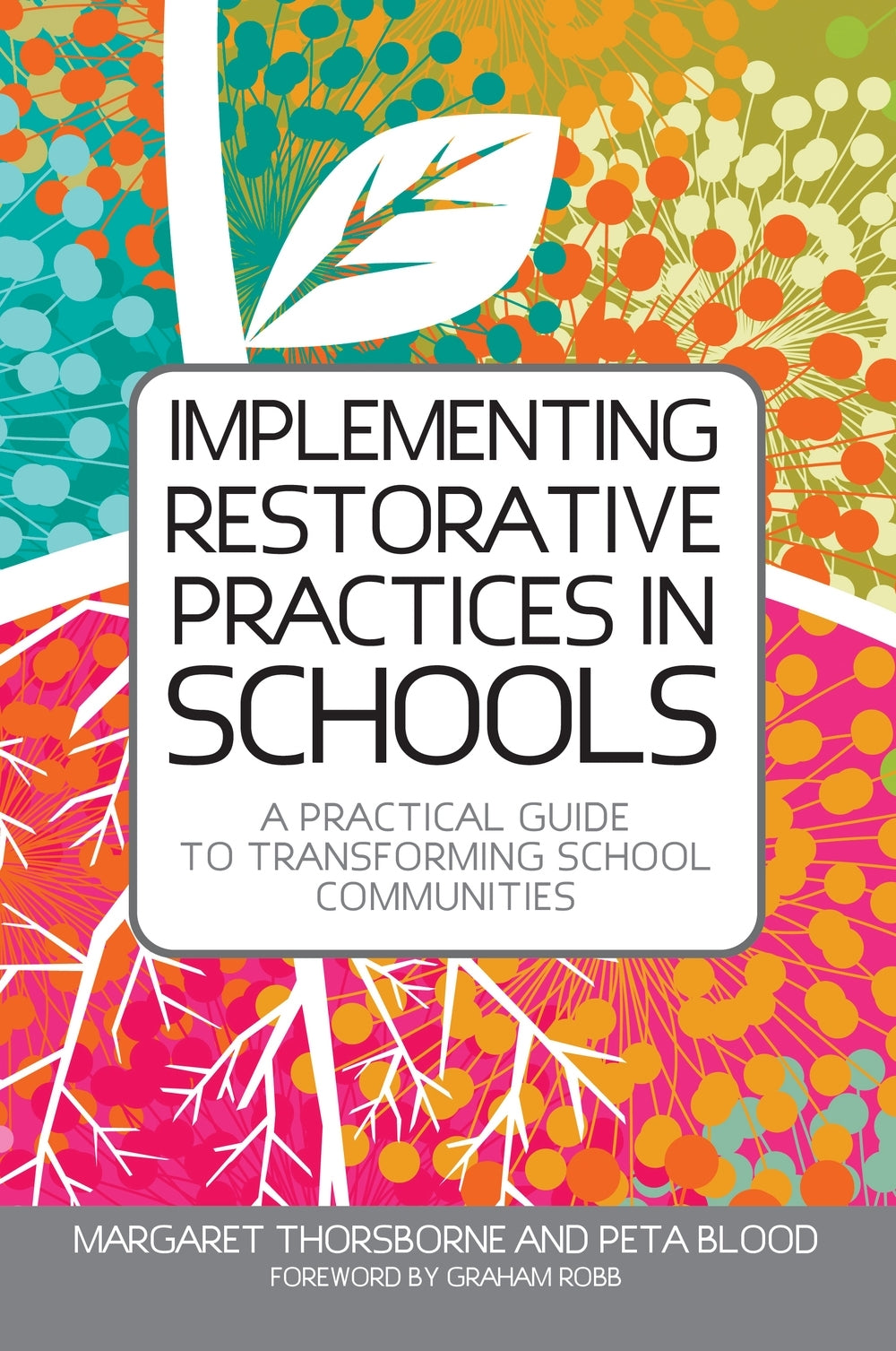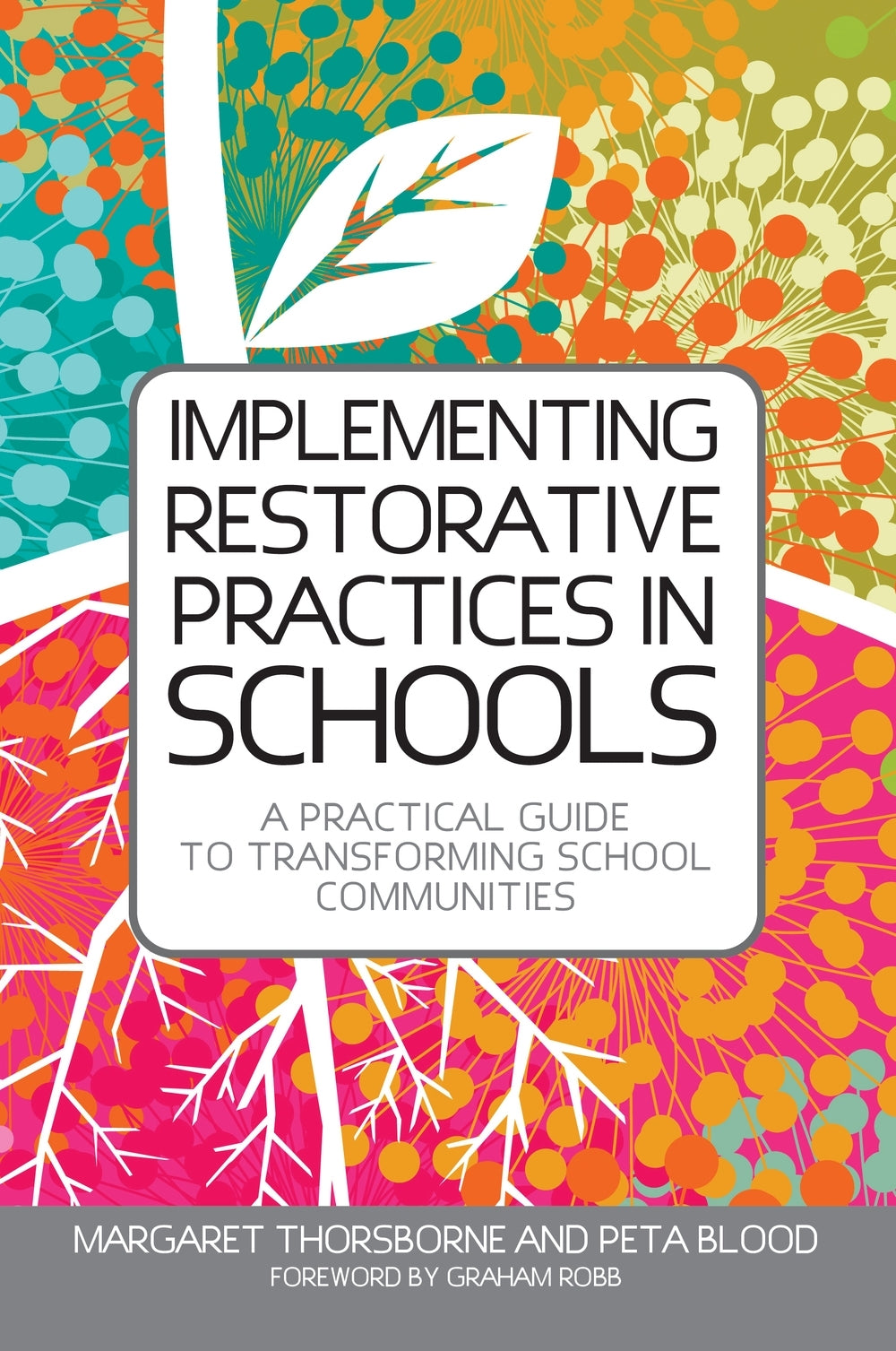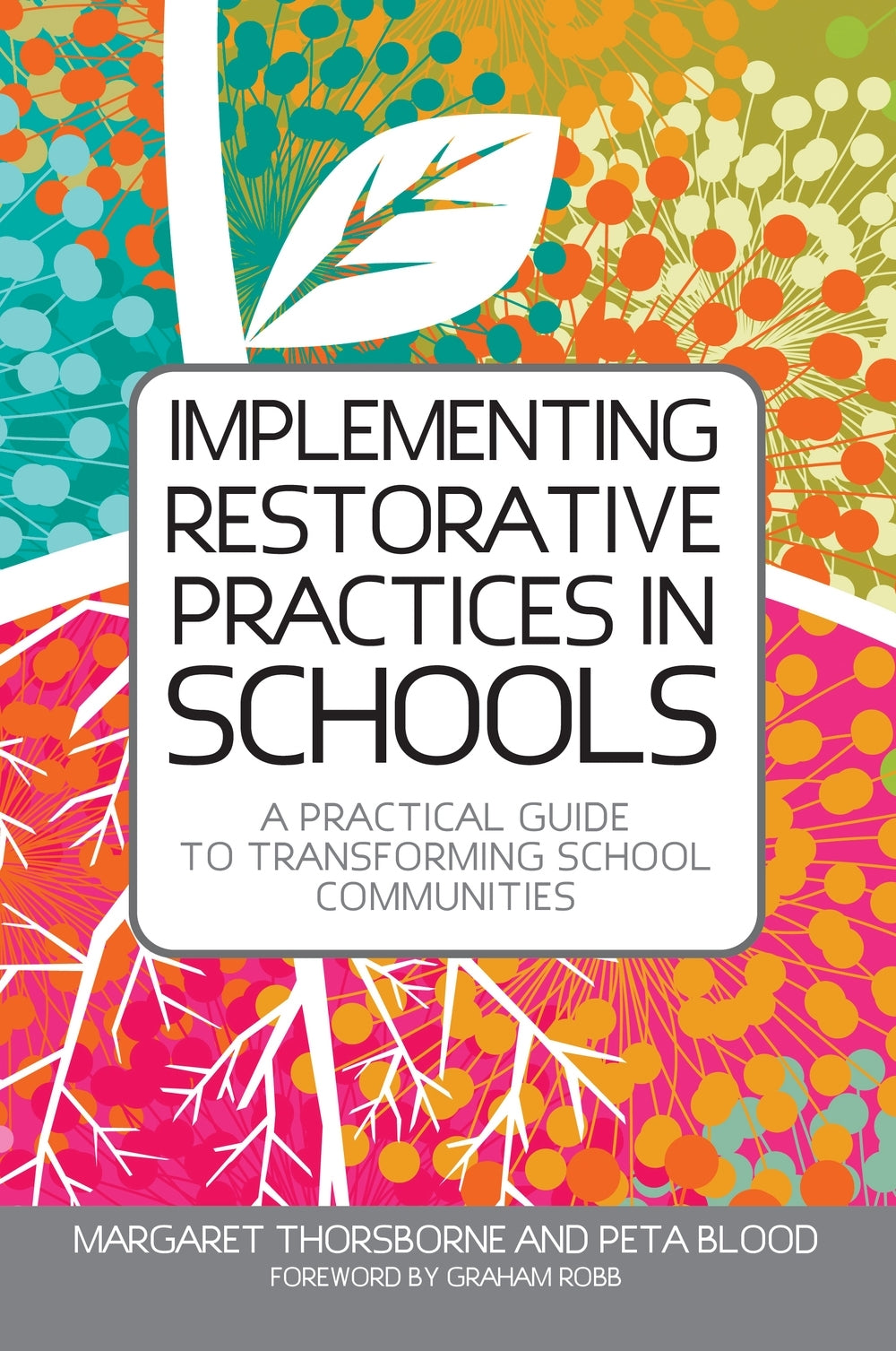

Press Reviews
Nancy Riestenberg, School Climate Specialist, Minnesota Department of Education, USA
We know children need caring relationships, healthy communities and a way to fix their mistakes, but how do we get everyone in the school community building relationships and community, and offering help, all at the same time? Blood and Thorsborne have gathered the research on implementation, molded it into useful insights and provided practical direction in this clear and helpful book -- a book every school administrator should read. To be committed to school change, one has to first understand change. Using the insights of change theorists and their own pioneering experiences, Marg and Peta provide that essential understanding.
Belinda Hopkins, Director, Transforming Conflict, National Centre for Restorative Approaches in Education, UK
This book is an inspiration. It is the natural successor to the first generation of books that set the scene by explaining what restorative practice looks like in a school setting. The book addresses the challenge many educators face after the initial excitement of their first restorative skills training course -- how to spread the insights and the practice across their school community? Drawing on their wealth of experience, Marg Thorsborne and Peta Blood explain what the pitfalls are likely to be, and how to overcome them. They bring insights from the field of change management which are invaluable, and they offer case studies from schools all over the world to give weight to their message. I have no doubt that this book will become the core text for all those leading or supporting schools on their restorative journey. I can hardly wait to make use of the numerous practical ideas and resources that are provided with colleagues in the field.
Kenny Frederick, Principal, George Green's School, London, UK
Teaching young people and staff (and indeed parents/carers) to forgive each other and resolve problems is one of the most important jobs a school can do. Emotional intelligence is not an old-fashioned idea -- it is essential for well-being, and we need to make our students resilient and help them form healthy relationships. This book is a practical guide to changing the ethos or climate of a school and getting people to think about and change their behaviour. It gets us away from blame and negative attitudes, showing us a positive way forward. I can recommend this book to head teachers, teachers and all staff who support young people and who are interested in improving their own practice. This book will help them in that quest. I would also recommend this book to any parents/carers who are finding parenting difficult to manage.
from the foreword by Graham Robb, a former secondary school headteacher who works in education and youth justice. He is Chair of the Restorative Justice Council in the UK
Marg and Peta have done a huge favour to schools by distilling their years of training, research, reflection and leadership into this eminently practical and inspirational book. Wherever you are on your restorative school journey, this book will help.

